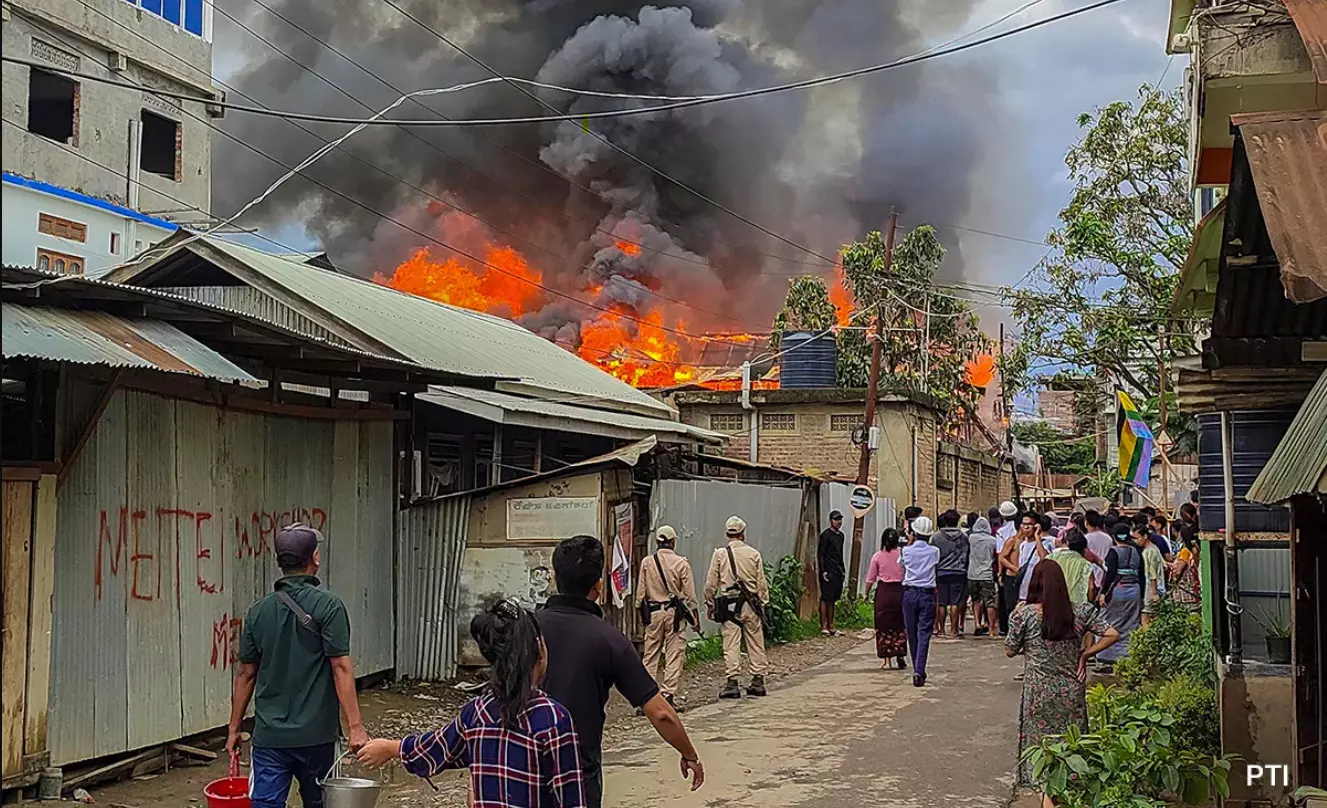Burning bright

Manipur has been burning for the last two months, and the signs of abatement are negligible. What is worse is that the situation is further fuelled by a range of factors — rendering the law-and-order situation in the state on the verge of collapse. The state recently witnessed the killing of at least three persons, including a policeman, in Kangpokpi district after a lull of 16 days. As a matter of fact, around 133 people have lost their lives to date on account of violence that erupted on May 3. The root cause — mistrust among the three major ethnic communities of the state — is only exacerbating. Revival of insurgent groups in the state is the most recent and scary manifestation of this mistrust. Notably, insurgency had been a common trait in all three ethnic groups — Meitei, Kuki and Naga. Credit to the effective measures taken by the government, the insurgent groups had been pushed on the backfoot for over a decade. Now, amid the turbulent situation, they have sensed a newfound opportunity to resurface in the state. Their revival feeds upon the prevailing insecurity among people belonging to all the ethnic communities. Furthermore, the mistrust is not just limited among the citizenry. Inhabitants of the state — particularly those belonging to Kuki and Naga tribes — are hostile and distrustful towards the government as well. In fact, the entire episode unfolded with an underlying belief that the state government is inclined in the favour of the Meitei community. While it is hard to tell the truth, the very perception of the government holding bias against any particular community can be detrimental to the peace and stability of the concerned region — Manipur being a textbook example of this. It must be the responsibility of the government to adopt an effective and honest communication strategy and healthy gestures to convey its impartiality. The Manipur government, sadly, has failed to do so. If the citizens of a state feel forced to take up arms to safeguard their lives and interests, it reflects a complete failure on the part of the government as a protector and provider. The story of mistrust doesn’t end here. The notorious hostility between the armed forces and local population of Manipur has also come into play. On July 15, 2004, twelve Manipuri women had disrobed in front of Assam Rifles headquarters, carrying banners with messages painted in red, “Indian Army Rape Us.” That was perhaps a culmination of a long dormant angst which has not settled even today. It is against this volatile situation and looming insecurity that armed people are reportedly seeking solace in the malevolent assistance provided by their respective insurgent groups. This cocktail of popular unrest and insurgent designs, if not checked in time, will take the situation in the state to a new low. Furthermore, the problem of Manipur is now spilling over to neighbouring states. Mizoram, for instance, has been receiving a large number of migrants from Manipur as a fallout of the violence. Mizoram is already burdened by a large number of immigrants from Myanmar. Despite regular requests, it has failed to garner due assistance from the government. The Central government and the state governments of Manipur and Mizoram must act collaboratively to find a fix to this problem of internal migration. In view of the multipronged threats that the state of Manipur and surrounding regions are facing currently, a calibrated response is needed. All political parties must come together to help ease the misery of the people in these horrific times. Such a consensus, however, has been absent. Congress leader Rahul Gandhi’s visit to the state saw heavy backlash from the BJP — relegating an opportunity to the status of political slugfest. All-out effort is needed to restore people’s trust in government machinery and towards each other. That alone can save the state from burning. To date, the government has worked sensibly by sticking to persuasive policies rather than high-handedness. More is needed.



